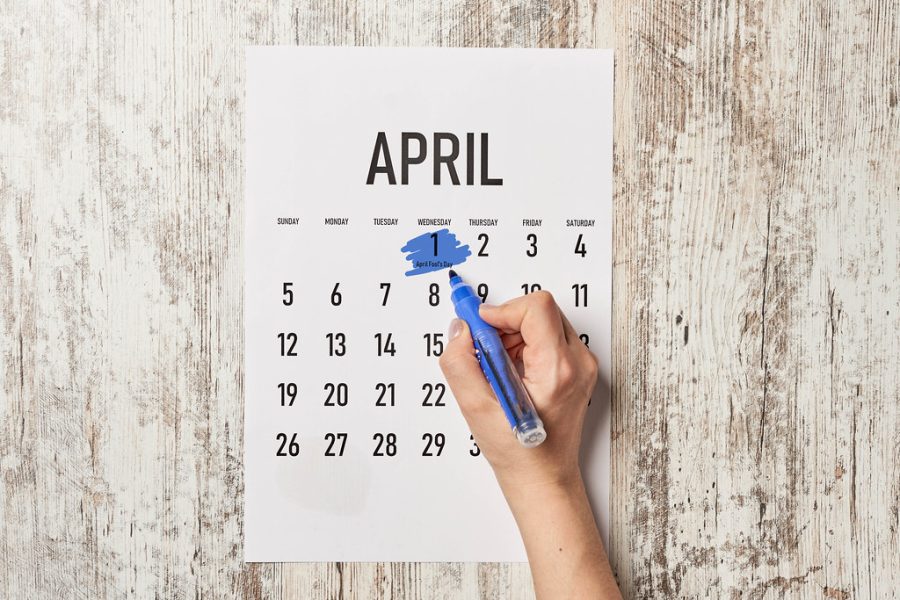April Fools’ Day: The joke’s on you
Every year on April 1, people celebrate the jokes and hoaxes that come with April Fools’ Day; however, when I look at the calendar, I, along with many others, seem to ask the same question: What actually is April Fools’ Day, and why do we celebrate it?
In order to rationalize the purpose of this holiday, it’s important to analyze its roots. April Fools’ Day stretches all the way back to 1582, with the advent of the Gregorian Calendar in France.
France would soon change to the Gregorian Calendar, as suggested by the Council of Trent in 1563. Before the emergence of the Gregorian Calendar, the Julian Calendar, which the French had used up until 1582, had marked the start of the year as April 1; however, the Gregorian Calendar placed the first day of the New Year on Jan. 1. As people failed to realize that Jan. 1 was the start of the new year, and not April 1, many laughs were shared. The term “April Fool” was placed on the people that mistakenly took April 1 as the start of the new year.
Often, the “April Fools” became the butt of many jokes. Symbolic of the humor of the time, paper fish were usually taped to the backs of those who were slow to recognize the beginning of the new year. The fish presented the term: “poisson d’avril,” which means “April Fish,” and was coined to describe a young, gullible person.
Now that we know the history of April Fools’ Day, we can dive into some of the most famous jokes and hoaxes in recent history. The media is known for deceiving listeners and viewers. For example, in 1957, the British Broadcasting Company ran a segment in their news broadcast about a record spaghetti crop harvest in Switzerland. The broadcast even went as far as showing images of people harvesting noodles from trees.
In 1992, the National Public Radio station ran a spot on April 1 with “Former President Richard Nixon” insisting that he was running for another term as president. However, listeners were not listening to Richard Nixon, they were listening to an actor who was pretending to be Nixon. Although not true, listeners were easily duped by this hoax.
Whether it be a nationwide prank, as in TV or radio, or a prank on your friends, like plastic wrap on the toilet seat, or replacing sugar with salt, April 1st will likely always stand as a day for pranks and hoaxes against innocent and unknowing people.

Currently a senior at the Math and Science High School at Clover Hill, Cabot is very much interested in the world of sports. He is currently in his second...







